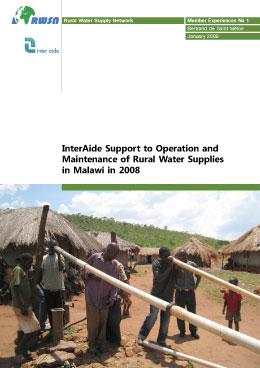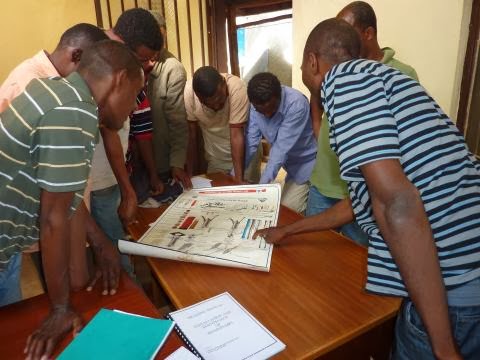Afridev and Malda pumps both started ”life” in Malawi in the early 80’s.
Focus on the development of Afridev shifted then to Kenya in 1983 ; and the Malda is the ”direct action” version of the Afridev pump developed in Malawi – MALawi Direct Action Pump : in 1994, UNICEF placed an initial order of 100 MALDA produced locally and installed in the project areas of Inter Aide and Concern Universal.
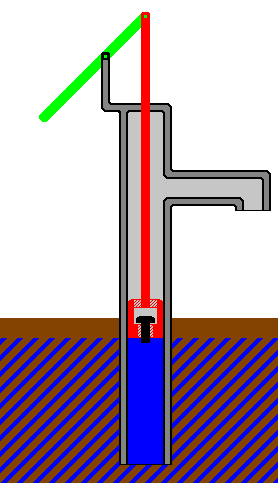 Both of them are piston pumps.
Both of them are piston pumps.
” The piston is fitted with a non-return valve (the piston valve) and slides vertically up and down within a cylinder that is also fitted with a non-return valve (the foot valve). Raising and lowering the handle of the pump causes vertical movement of pump rods that are connected to the piston. When the piston moves upwards, the piston valve closes and a vacuum is created below it, causing water to be drawn into the cylinder through the foot valve, which opens. Simultaneously, water above the piston, held up by the closed piston valve, is displaced upwards. In a simple suction pump it emerges through the delivery outlet. When the piston moves downwards, the foot valve closes, preventing backflow, and the piston valve opens, allowing the piston to move down through the water in the cylinder. ”
source Water Aid : http://www.wateraid.org/~/media/Publications/Handpumps.pdf
These pumps have been designed so that it could be maintained by users (VLOM pumps -Village Level Operation and Maintenance) and could be manufactured locally.
 The Afridev, in comparison to another popular hand pump – the India Mark II* -, can be considered as less robust, as wearing parts need to be change regularly (yearly), but the repair can be done more easily:
The Afridev, in comparison to another popular hand pump – the India Mark II* -, can be considered as less robust, as wearing parts need to be change regularly (yearly), but the repair can be done more easily:
*India Mark II are not VLOM
- need few tools
- the piston can be removed from the cylinder without dismantling the rising main. The foot valve is retractable with a fishing tool, meaning less risks of rods falling down and losing the borehole.
It is designed to lift water from a depth no greater than 45 metres.
More information here:
www.rural-water-supply.net/en/implementation/public-domain-handpumps/afridev
rural-water-supply.net/_ressources/documents/default/286.pdf
or here
akvopedia.org/wiki/Afridev_pump
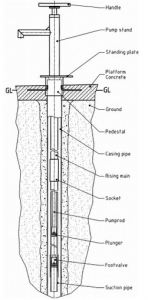
The MALDA pump is a direct action pump, i.e. operating without the help of leverage, linkages and bearings, and depend on the strength of the operator pumping to lift the column of water.
The maximum recommended lift is 15 m.
More information here:
www.rural-water-supply.net/en/implementation/public-domain-handpumps/malda-pump
www.rural-water-supply.net/_ressources/documents/default/MALDA_Installation-Manual_Ed-2003.pdf
or here
akvopedia.org/wiki/Malda_pump
To go further: www.rural-water-supply.net/en/resources/details/475


 Both of them are piston pumps.
Both of them are piston pumps.

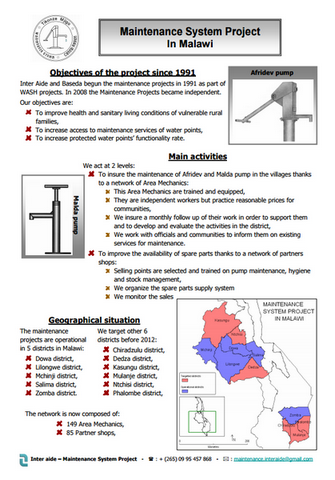 The following document (published on
The following document (published on  The
The


